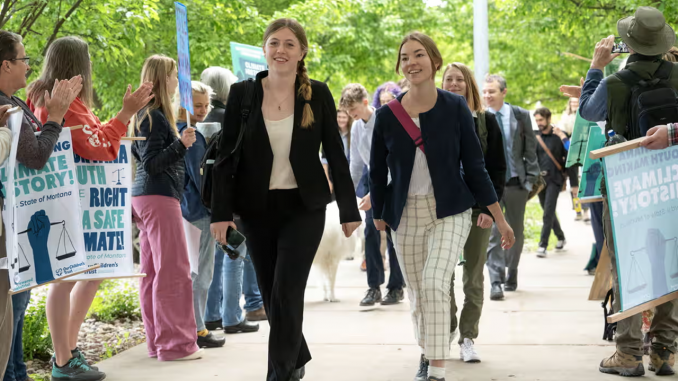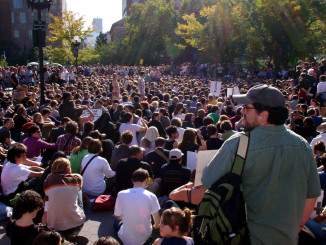
People living in Montana have the right to a “clean and healthful environment” according to Judge Kathy Seeley of the Montana District Court in Helena. This decision came after the judge spent a week listening to experts explain how fossil fuel-related pollution is the direct cause of the dangerous rise in temperatures around the world. Montana includes Glacier National Park where several glaciers are expected to disappear by 2030. The state is vulnerable to more and larger wildfires thanks to climate change. Over the next 70 years, the number of days above 100°F in Montana is likely to double. The use of coal and oil produced in Montana generate as much greenhouse gases as the entire country of Argentina.
The Montana Constitution explicitly states that its people have “the right to a clean and healthful environment” and it obliges the state government “to maintain and improve a clean and healthful environment in Montana for present and future generations.” Despite this, the Montana State Legislature passed laws forbidding the Montana Environmental Protection Agency from considering the impact of greenhouse gases when ruling on applications for more oil wells and coal mines. The judge’s ruling makes these laws unconstitutional. The Montana government is appealing this decision.
The Montana case was brought by 16 young Montanans. All over the world, young people are protesting the way companies like Exxon/Mobil and Chevron abuse the environment. Nobody has more reason than young people to protest climate change, because if it is not stopped, they face a future ruined by climate catastrophes. The judge’s ruling in this case is just one more recognition of the urgency of stopping climate change.
There are other lawsuits to force fossil fuel companies and governments to quit the dangerous pursuit of profits at the expense of health and safety. Oil companies are counterattacking with the help of the politicians who serve them. Biden’s Department of Justice (DOJ) answered one such lawsuit in the U.S. district court in Oregon, asserting, “There is no constitutional right to a stable climate system.” For good measure, the DOJ reminded the district court that the Supreme Court ruled that the Constitution “imposes no duty on the government to protect persons from harm inflicted by third parties.” This Supreme Court doctrine allowed the U.S. government, for example, to ignore racial discrimination by corporations until civil rights laws making racial discrimination illegal were passed as a concession to the mass protests organized by the Civil Rights Movement.
The pressure for government action on climate change is growing. Up until now, agencies like the federal Environmental Protection Agency (EPA) have had the power to make and enforce detailed regulations defining precisely what businesses have to do so to achieve the goals set by Congress, such as providing us with clean air and water. To counter this, corporations are demanding that the Supreme Court take this power away from U.S. government regulatory agencies. For the EPA, this would mean it could no longer enforce rules setting precise standards governing how oil refineries operate if those standards were not written explicitly into the laws passed by Congress. And Congress is certainly not likely to do that.
The ruling by the Montana judge is a victory, but only a symbolic one. The judge endorsed the human right to have a clean and healthy environment. However, the government, including the courts, is less and less inclined to take action to implement such rights of any sort. Once again, if we are to enjoy our human rights, we will have to fight for them.




